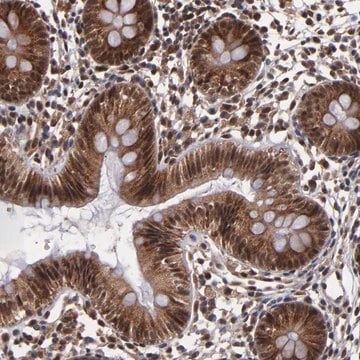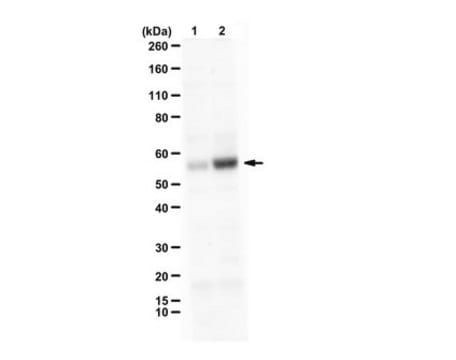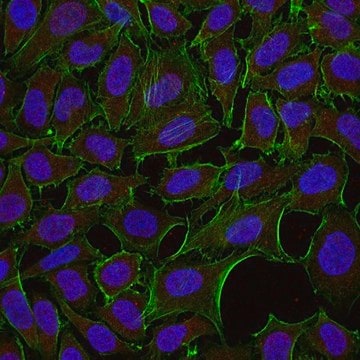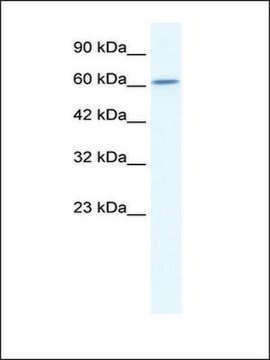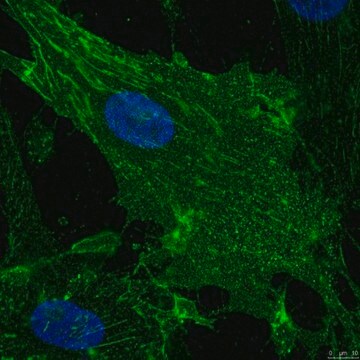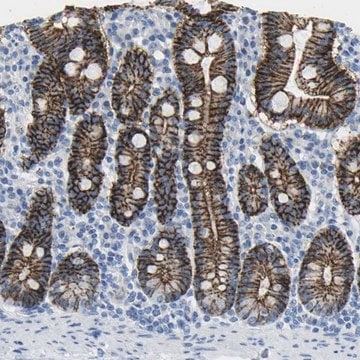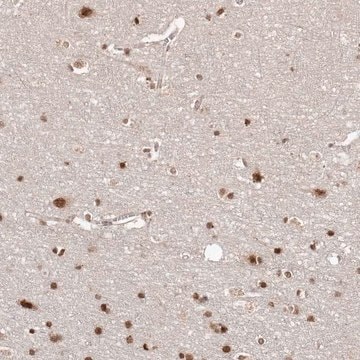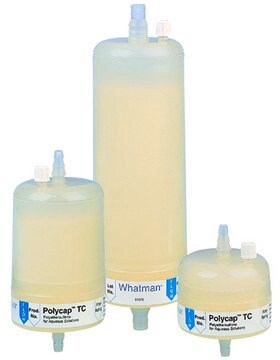ABN289
Anti-Cullin-5 (CUL5) Antibody
from rabbit, purified by affinity chromatography
Synonym(e):
Cullin-5, CUL-5, Vasopressin-activated calcium-mobilizing receptor 1, VACM-1
About This Item
Empfohlene Produkte
Biologische Quelle
rabbit
Qualitätsniveau
Antikörperform
affinity isolated antibody
Antikörper-Produkttyp
primary antibodies
Klon
polyclonal
Aufgereinigt durch
affinity chromatography
Speziesreaktivität
human
Speziesreaktivität (Voraussage durch Homologie)
rabbit (based on 100% sequence homology)
Methode(n)
immunohistochemistry: suitable
western blot: suitable
NCBI-Hinterlegungsnummer
UniProt-Hinterlegungsnummer
Versandbedingung
wet ice
Posttranslationale Modifikation Target
unmodified
Angaben zum Gen
human ... CUL5(8065)
Allgemeine Beschreibung
Spezifität
Immunogen
Anwendung
Neurowissenschaft
Entwicklungsabhängige Signalübertragung
Qualität
Western Blotting Analysis: 1.0 µg/mL of this antibody detected Cullin-5 in 10 µg of human heart tissue lysate.
Zielbeschreibung
Verlinkung
Physikalische Form
Lagerung und Haltbarkeit
Hinweis zur Analyse
Human heart tissue lysate
Sonstige Hinweise
Haftungsausschluss
Sie haben nicht das passende Produkt gefunden?
Probieren Sie unser Produkt-Auswahlhilfe. aus.
Lagerklassenschlüssel
10 - Combustible liquids
Analysenzertifikate (COA)
Suchen Sie nach Analysenzertifikate (COA), indem Sie die Lot-/Chargennummer des Produkts eingeben. Lot- und Chargennummern sind auf dem Produktetikett hinter den Wörtern ‘Lot’ oder ‘Batch’ (Lot oder Charge) zu finden.
Besitzen Sie dieses Produkt bereits?
In der Dokumentenbibliothek finden Sie die Dokumentation zu den Produkten, die Sie kürzlich erworben haben.
Unser Team von Wissenschaftlern verfügt über Erfahrung in allen Forschungsbereichen einschließlich Life Science, Materialwissenschaften, chemischer Synthese, Chromatographie, Analytik und vielen mehr..
Setzen Sie sich mit dem technischen Dienst in Verbindung.